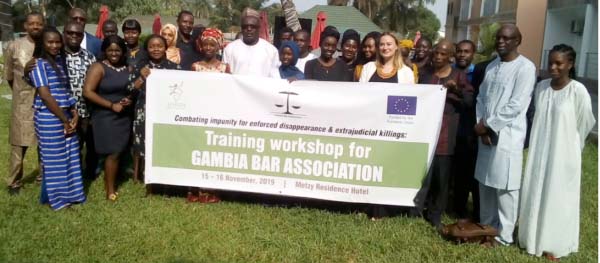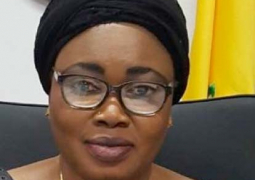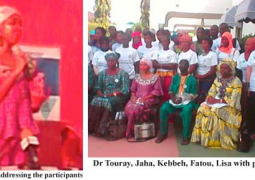
Gaye
Sowe, executive director of Institute for Human Rights and Development in
Africa (IHRDA) has said that IHRDA under its combating impunity for enforced
disappearance and extrajudicial killings initiative intends to document ten
cases enforced disappearance and extrajudicial killings and litigate five of
them.
However,
Mr. Sowe added that this will depend on what comes out of the transitional
justice process.
Executive
Director Sowe made these remarks last Friday at Metzy Hotel during the opening
of a-two-day training workshop for 35 members of The Gambia Bar Association
under the framework of IHRDA’s initiative in combating impunity for enforced
disappearance and extrajudicial killings.
He
pointed out that there were very serious human rights violations during the
Jammeh era, adding that transitional justice processes put in place has gone
very far in getting to the bottom of what happened during Jammeh’s regime.
He
noted that after documenting the cases, they also intend to prepare a report
and send it to the UN working group on enforced disappearance as well as the
African Commission on Human and People’s Rights so that they can join their
fight in making sure enforced disappearance or extrajudicial killing that
occurred in The Gambia are properly dealt with.
According
to him, litigation could involve criminal prosecution.
He
highlighted that the aim of the training is to contribute to the fight against
impunity, increase access to justice to victims of enforced disappearance and
extrajudicial killings, to build and enhance capacities of participants on the
existing local, regional and international frameworks and how to deal with
enforced disappearance and extrajudicial killings.
Salieu
Taal, president, Gambia Bar Association, remarked that state securities were
used as instruments of oppression during Jammeh’s 22-year dictatorship regime
against civilians and non-civilians as well as enforced disappearance and
extrajudicial killings as order of the day.
He
observed that every Gambian who woke up in those days could disappear or die
and could do nothing about it.
Mr.
Taal highlighted that it is important for lawyers to have the capacity,
knowledge and knowhow as well as play a critical role in ensuring impunity is
in our past.
“Going
forward we cannot allow impunity to reign in our country again,” he added.
Enya
Braun, representing the European Union, said the idea behind the workshop was
to lay the ground work ahead of what is to come.
She
expressed EU’s commitment to continue supporting Gambia’s transitional process.
“It is now or never for The Gambia,” she concluded.




